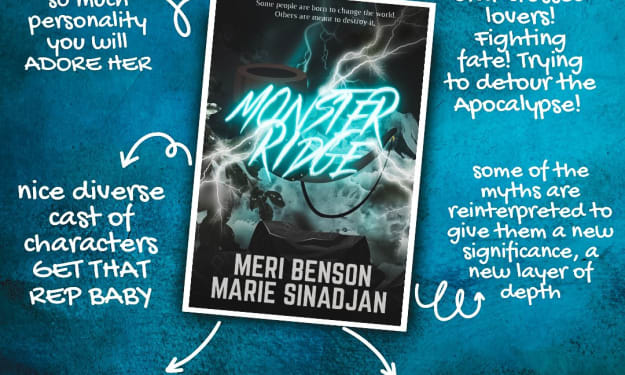What I'm Reading: Meanjin Column
What I'm Reading: a column for Meanjin Quarterly online

[First written for and published with Meanjin]
October 26
I’m sitting on a bench in New Farm Park reading Northanger Abbey on my phone. The jacarandas are in bloom and a breeze cools my face, which is red from running.
I finish Chapter 17 and uncross my legs, disentangling myself from the character I’ve been inhabiting—the one in my head as well as the one on the page.
I walk back to my car, purple blossoms under my runners. Nobody would guess that I’ve just been reading classic literature. In my T-shirt and leggings, I look like any other jogger in this well-to-do neighbourhood—though I should mention, I’m not from around here.
Posing in the tunnel of shedding jacarandas is a woman in heels and a yellow dress. Her companion crouches in the carpark, probably taking flattering, Instagram-worthy photos of her. I passed them before my run almost an hour ago. While I travelled several kilometres, they’ve only moved about a hundred metres. Yet I find myself thinking that if I was more like them, I might at least look the part—the part of this character I keep wishing I was, a part I could play like an actor, though I know I’d never pull it off convincingly. I want to be the kind of person who carries around special edition hardcovers and sips on oat lattes while people-watching or scribbling poems into a notebook. But I suppose that would reduce my books to accessories. And besides, as much as I’d love to tote around aesthetic hardcover novels, it’s never been financially viable for me.
I remember the first time reading became inaccessible to me. I was nine, and I’d just finished reading the first two Harry Potter novels—birthday gifts from my mother. Most of my friends had already read the whole series, though they weren’t too vocal about it; at school, Harry Potter fans were considered nerdy social outcasts. A convenient example was the trio of boys who mimed wizarding duels at lunch, calling out spells in Latin, using sticks in lieu of wands.
When my mother suggested I continue the series in Russian—she’d brought all of her books with her when my parents emigrated—I was crestfallen. I checked the school library daily, but the series was always out on loan. So, reluctantly, I began slogging my way through the Russian translation of Prisoner of Azkaban. Lockhart’s words—‘The adventure ends here, boys’—kept echoing through my head.
As a kid, I remember dreaming of a colour-coordinated bookshelf that would span my bedroom wall like an art piece. In my dream scenarios, reading is not a performance for others to observe, but a private act. In these dream scenarios, I’m always alone, curled up by an imaginary bay window, reading a never-ending supply of books—alone, but rarely lonely.
In reality, I mostly engage with literature through my phone, through apps like Goodreads and YouTube, where readers trade recommendations that end up lost in the void. Occasionally, I contribute unsolicited book reviews to these apps. I know they’re seldom read by anyone outside of my small circle of Goodreads friends, but the sense of community is reassuring nonetheless. Though it’s a landscape ripe for judgement, Goodreads and BookTube are my safe spaces on the Internet, especially at a time when reading is no longer perceived as nerdy, but trendy.
November 12
I’m sitting on a park bench in an affluent suburb, reading The Jaguar by Sarah Holland-Batt. Every time someone walks along the winding footpath, I act nonchalant, as if I’m the kind of person who’s accustomed to bringing iced lattes and donuts to read at the park.
A few years ago, I would’ve been snapping photos for Instagram, but I’ve given up on curated authenticity—at least, in the digital world. Even so, I’ve spent half of my time here typing this essay into my phone, becoming aware of passing cars, and admiring the clean houses and big open driveways around me. Across the street, a young family piles into their SUV, two little girls in swimmers climbing into the backseat.
Everything is so white here, so bright. Sometimes I forget that such places exist in the real world.
I keep shifting around, unable to sit still or relax without feeling productive. My mind is restless, too; within each poem, I seek inspiration for my own writing, some link to a forgotten memory.
I close the book, my eyes damp.
The family across the street returns from their trip to the swimming pool.
My phone, usually silent, has been dinging with notifications; an email from a magazine rejecting a short story, my dad texting me from a swim meet, Goodreads asking me what I’m going to read next, now that I’ve finished The Jaguar.
In the last hour, people have come and gone with their children and their dogs. They have trampled the vibrant green grass and ignored the winding footpath that meanders through it. I’m the only one who has remained here, but that doesn’t mean I haven’t travelled the furthest.
November 16
I’m sitting in a cafe reading A Kinder Sea by Felicity Plunkett. This is a poetry collection to consume slowly, allowing time to savour each poem and let it dissolve like seafoam, let it run like ink through the brain.
The other patrons have left, and I use the opportunity to photograph my aesthetically pleasing surroundings. I consider uploading an Instagram story featuring my drained glass, the corner of my book, and the edge of the document open on my laptop. Enough for my followers to guess, enough to leave an air of mystery. I suppose that’s my mindset when choosing what to read, especially if I’m taking the book with me in public. I don’t want to appear too mainstream, nor do I want the titles to say too much about me to onlookers. Of course, there is an assumption that people are watching me in the first place.
I close Instagram, discarding the story. It looks too contrived.
November 18
I’m back where I started, sitting on a bench in New Farm Park, this time reading The Wheel Spins by Ethel Lina White, which is the basis for Alfred Hitchcock’s The Lady Vanishes.
The jacarandas have faded back to green. I’ve gone back to reading on my phone, back to frantically tearing through my TBR so I can complete my Goodreads Reading Challenge for another year.
I scroll through the various editions of White’s book until I find the cover I like best. Blue with stripes and a retro font, this edition suggests trendy social media infographic rather than classic novel published in 1936. I admit, I choose it solely because of how it contrasts with the other books on my digital shelf, in case anyone ever stalks me on Goodreads.
Again, there is the assumption that people are carefully surveilling me, judging me. It’s the assumption I carry around with me every day; it’s the assumption that guides me in everything I choose to read and share that I’m reading—which begs the question, would I have chosen these titles if I hadn’t been asked to write about what I’m reading?
I’d like to think that romanticising life is important, even if reading becomes a performance in the process. Even if it does, I’d like to think that literature reminds us of the contrast between fiction and reality (without sadness we would not know joy, and all that).
In the words of Nobel Prize winner Mario Vargas Llosa, ‘Without fictions we would be less aware of the importance of freedom for life to be liveable… literature not only submerges us in the dream of beauty and happiness but alerts us to every kind of oppression…’ In this case, it becomes almost irrelevant whether these fictions are of our own creation or someone else’s—often, I find it’s a combination of both.
About the Creator
Svetlana Sterlin
Svetlana Sterlin is based in Brisbane, Australia, where she writes prose, poetry, and screenplays. The founding editor of swim meet lit mag, she also edits with Voiceworks.
More from Svetlana: https://linktr.ee/svetlanasterlin






Comments (2)
Thanks for sharing this here. I’ve seen others quote your line “It’s so white here”, inspired by your observation. It’s great to know a little of the author & read all of this.
You're doing amazing work